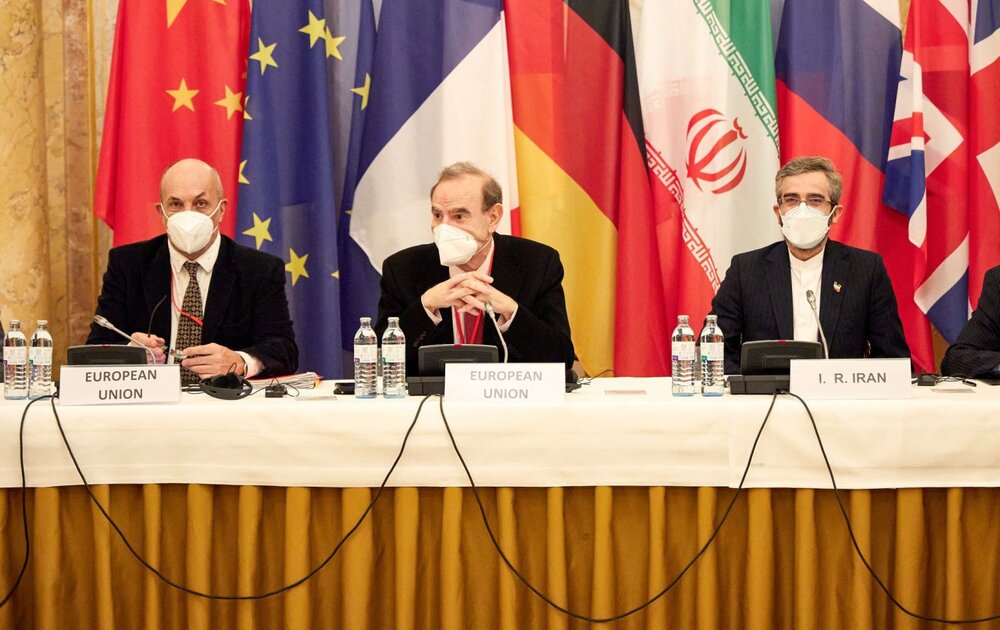Threat and pressure do not work on Iran

TEHRAN – Until Sunday, there was a sense of optimism about possible progress in the Vienna talks. But optimism soon turned into pessimism by virtue of a Western harder-line stance that featured threats and bluster against Iran.
The European trio in Vienna – France, Germany, and the UK (E3)- put out a downbeat statement late on Monday blaming Iran for lack of progress in the talks.
“As of this moment, we still have not been able to get down to real negotiations,” the E3 said. “We are losing precious time dealing with new Iranian positions inconsistent with the JCPOA or that go beyond it.”
The statement came after coordination between the E3 and the U.S. negotiating team led by Iran envoy Rob Malley and exposed a clear division of labor between the Western negotiators. When the talks resumed last week, Malley had put off his trip to Vienna until Sunday on the condition that the talks make progress. He arrived in Vienna and met with the Europeans. The E3 issued the cynical statement afterward. If the talks had not made any progress, then why he would have gone to Vienna?
In reality, the talks have made progress and they continue to make progress. The Europeans are well aware of the progress being made in the talks but they are pressing ahead with their policy of playing a blame game against Iran in order to extract more concessions at the negotiating table.
In the meantime, Israel also plays its part in close coordination with the E3 and Washington. Tel Aviv is now issuing military threats against Iran almost on a daily basis. The Americans and British also seem willing to insinuate that they are unwilling to rein in the Israeli bluster.
In some ways, the British also sought to signal that they are siding with Israel against Iran. This was clear right from the start of the new round of the Vienna talks. The foreign ministers of Israel and Britain published a joint article vowing to work hand in glove to prevent Iran from obtaining nuclear development.
This negotiating tactic is also manifested in the room. While the French continue to play the role of a bad cop, the British seek to showcase harmony with Israeli demands, according to an Al-Akhbar report.
Citing a source familiar with the talks, the Beirut-based newspaper said, “Paris continues to play the role of a very bad cop, while London seeks to show that it is in line with Israeli demands, to impose greater pressure on Tehran, and Berlin is taking a middle position between Paris and London.”
All this is aimed at ramping up pressure on Iran to force it into making more concessions. European and American officials know full well their tactics will not produce any tangible results. This may be the reason why Washington and its European allies count on the Israeli bluster to change Iran’s calculus in their favor.
But even most hawkish Iran experts believe that Israel’s talks of a military strike against Iran’s nuclear facilities is nothing more than diplomatic bluff intended to pocket more concessions from Iran at the negotiating table.
On the other hand, Iran has made it clear that military option is not available for the U.S. as it would lead to large-scale destruction of U.S. assets in the region. “Military conflict will lead to the destruction of all US assets in West Asia & the collapse of pro-US regimes. It would be an ideal moment for China to retake Taiwan & Russia to take East Ukraine. Iran would end all nuclear talks. It's wise for the US to fully implement the JCPOA,” Seyed Mohammad Marandi, a media advisor to the Iranian negotiating team, tweeted on Tuesday.
In a sense, the U.S.-Israeli threats and pressure will not only fail to budge Iran but will also have dire consequences for the West.
